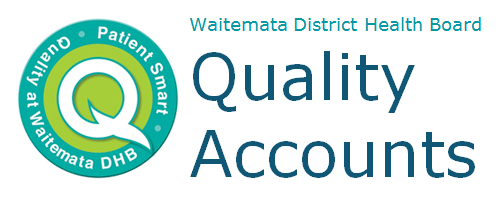
Women in Mental Health services often experience low confidence and poor self-esteem. Interventions with an emphasis on empowering and strengthening them as women are critical for their recovery.
Pasifika are often reluctant clients due to a combination of factors including:
- poor/lack of understanding of mental health
- shame
- poor/lack of understanding of therapy
- lack of support leading to inability to attend regular sessions
- type of mental health disorder
- severity of the mental health disorder
- how long they have had their mental health disorder
- social/situational factors
What are we trying to achieve?
Our aims were to:
- develop a Pasifika Model of Health delivered by Pasifika for Pasifika
- delivering a programme that supports Pasifika Women to build, repair and maintain good health
- provide a safe learning environment for Pasifika Women to address their health issues with the desired outcome of:
- reducing the need for hospital admissions
- reducing the need for contact with the Mental Health Crisis Team
- reducing the length of stay under Mental Health Services
What have we done?
Every culture or ethnic group has its own unique perspective of the world and way of defining its reality.
Pasifika have an understanding of health and wellness grounded in elements of common history, shared language features shaped and developed within family structures, shared ancestry, religion, beliefs, and tradition.
Fonofale Model of Health
The Fonofale Model of Health outlines such a cultural perspective of health:
- The Four Posts of Fonofale represent the Physical, Spiritual, Mental and other variables including sexual aspects of individuals
- The Four Posts rise from the foundation of family, sheltered by the roof of culture
- Fonofale is constantly influenced by external forces of environment, context, and time past, present and future

Cognitive Behaviour Therapy (CBT)
- CBT is one of today’s most researched and successful form of psychotherapy.
- CBT emphasises examination of the thoughts and beliefs connected to our moods, behaviour and physical experiences, and to the events in our lives.
- A central idea in CBT is that our beliefs and interpretations of an event or experience powerfully affect our emotional, behavioural and physiological responses to it.
Integration of Fonofale and CBT
We formed a programme development team consisting of development team consisted of a Clinical Psychologist, a Cultural Advisor, an Occupational Therapist and a Registered Nurse to create a culturally appropriate programme.
Pilot Programme
- The Takanga a Fohe Women’s Group was launched in September 2016
- We developed a group format programme using the Fonofale Model of Health to understand health from a cultural perspective, integrating cognitive behavioural therapy
- A pilot programme was developed consisting of 15 weekly sessions of two hours duration
- We trained Takanga a Fohe (Pacific Mental Health Services) staff on the programme
- Using a specifically formulated inclusion/exclusion criteria the team selected five clients who met criteria for the programme
- Three staff members joined as Participant Observers for professional development and to also train to become facilitators
- The team then evaluated the progress of each woman participating in the programme
Did we make a difference?
Improved Patient Outcomes
Following the completion of the programme the women who participated noted improvements in mood, confidence, relationships and physical functioning.
They also reported an increase in:
- participation with family and community
- accountability (for own health)
- adherence to treatment
And a decrease in:
- panic attacks
- frequency of contact with service/crisis team
- symptoms (eg hearing voices, obsessive thoughts, compulsive behaviour)
- suicidal thoughts
- self-harm
Patient Feedback
- The women who participated in the 15 week pilot programme reported that:
- they felt safe in the group setting
- the programme format encouraged them to explore and discuss issues
- the cultural concepts of the programme promoted a sense of ownership and accountability for their own health
- Three clients were successfully discharged from the service
- Two clients are preparing to be discharged from the service
Where to from here?
- This programme will now be replicated with larger numbers of women able to attend.
- The team are wanting to explore other measures of evaluation in future to better inform the outcomes of the programme.
References
- Fonofale Model of Health (Pulotu Carl Endeman, Francis Agnew)
- CBT, Mind over Mood (Aaron T Beck, Greenberger and Padesky)
